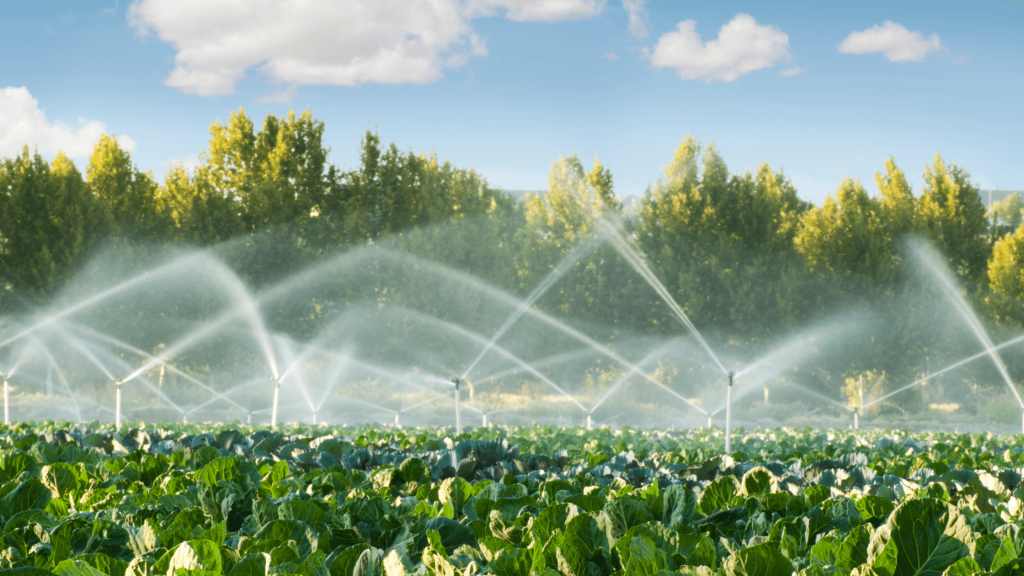How Smart Irrigation Systems Are Revolutionizing Agriculture
Smart irrigation systems are transforming the way water is managed in agriculture. These technologies help farmers optimize water use, reduce waste, and increase crop yields, making farming more sustainable and efficient.

Why Water Management Matters in Agriculture
Water scarcity is a global issue, with agriculture consuming approximately 70% of freshwater worldwide. Efficient irrigation is crucial for preserving this limited resource while meeting the needs of a growing population.
Challenges in Traditional Irrigation Techniques
Traditional irrigation systems often lead to overwatering, under-watering, and significant wastage. These inefficiencies contribute to soil degradation and reduced crop productivity, making smart solutions imperative.
Key Technologies in Smart Irrigation Systems
IoT-Based Sensors for Real-Time Monitoring
IoT sensors monitor soil moisture, weather conditions, and water levels in real time. They provide actionable data that farmers can use to adjust irrigation schedules and ensure precise watering.
AI-Powered Automation Systems
Artificial intelligence is at the heart of smart irrigation. AI algorithms analyze data from sensors and predict water needs based on crop type, soil health, and climate patterns, automating the irrigation process.
Drip Irrigation with Smart Features
Smart drip irrigation systems deliver water directly to plant roots at the right time and quantity. This technique minimizes evaporation and runoff, ensuring maximum efficiency.
The Role of Data Analytics in Smart Irrigation
How Data Improves Decision-Making
Data collected from smart irrigation systems helps farmers make informed decisions about water use, planting schedules, and crop management. This reduces resource waste and increases productivity.
Predictive Analytics for Better Planning
By analyzing historical data and weather forecasts, predictive analytics tools can anticipate irrigation needs and recommend adjustments, preventing both drought stress and overwatering.
Environmental Benefits of Smart Irrigation
Conservation of Water Resources
Smart systems reduce water wastage, ensuring that this precious resource is used sustainably. They play a vital role in combating water scarcity in drought-prone areas.
Reduction in Carbon Footprint
Automated irrigation systems lower energy use by minimizing unnecessary pumping and water transport, contributing to reduced greenhouse gas emissions.
Economic Advantages for Farmers
Cost Savings Through Efficient Water Use
By optimizing irrigation schedules, farmers save money on water bills and energy costs, making these systems a valuable investment.
Increased Crop Yields
Smart irrigation ensures crops receive the exact amount of water they need, leading to healthier plants and higher yields, which translate to greater profitability.
Smart Irrigation in Small-Scale Farming
Affordable Options for Small Farmers
Low-cost smart irrigation solutions, such as solar-powered systems, are becoming increasingly accessible to small-scale farmers, enabling them to benefit from advanced technologies.
Training and Support for Adoption
Government and non-profit organizations are providing training programs and financial assistance to encourage the adoption of smart irrigation among smallholders.
Future Innovations in Smart Irrigation
Integration with Climate-Smart Agriculture
Future smart irrigation systems will integrate seamlessly with other climate-smart technologies, enhancing overall farm resilience to climate change.
Blockchain for Water Usage Transparency
Blockchain technology could be used to track water usage and promote accountability, ensuring that resources are distributed equitably.
Conclusion
Smart irrigation systems represent a significant leap forward in sustainable agriculture. By leveraging advanced technologies like IoT, AI, and data analytics, these systems optimize water use, boost crop yields, and reduce environmental impact. As the global population grows and climate challenges intensify, investing in smart irrigation will be essential for securing the future of farming.
FAQs
What is a smart irrigation system?
A smart irrigation system uses advanced technologies such as IoT sensors and AI algorithms to monitor and optimize water use in farming.
How do smart irrigation systems help conserve water?
They deliver precise amounts of water based on real-time data, reducing wastage caused by overwatering or inefficient methods.
Are smart irrigation systems affordable for small farmers?
Yes, low-cost and scalable options are available, making it easier for small-scale farmers to adopt these technologies.
What role does AI play in smart irrigation?
AI analyzes data to predict irrigation needs and automate the watering process, ensuring efficient resource use.
How can smart irrigation reduce environmental impact?
By minimizing water waste and energy use, smart irrigation systems help conserve natural resources and lower carbon emissions.
